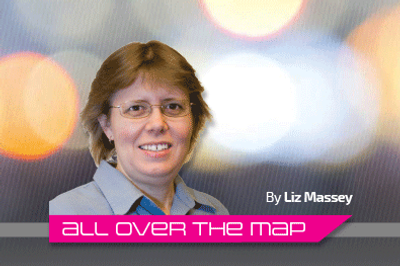By Liz Massey, December 2016 Issue.
We’ve just experienced one of the most polarized, uncivil election cycles in modern times, much less in my adult lifetime. Scandals, name-calling and projection escalated into threats and accusations of conspiracies before it was all over.
In the wake of all this, it’s worth pondering how we might return truthfulness to the center of civic life. Cynics may suggest that such an effort is doomed to fail, but my response is that we have to attempt to move the needle of public discourse back in the direction of honesty, or our country may head down a catastrophic path from which it will be difficult to recover.
One unique aspect of this year’s presidential race was an interest in real-time fact checking. Audiences don’t want to wait 24 or 48 hours to see if a candidate is telling the truth; they want to know now. And this isn’t without reason: an article published prior to the presidential primaries in late 2015 by the New York Times that utilized Politifact fact-checking analysis indicated that almost all politicians being evaluated lied some of the time. Some lied a lot (Donald Trump, 76 percent of the time), and some lied relatively infrequently (Hillary Clinton and Bernie Sanders, tied at 28 percent). But whether their mendacity is due to rhetorical flourishes, bad research by support staff, or fantasy-driven ego trips, it’s a bad idea to take every statement by a candidate at face value.
It’s tempting to retreat into apathetic passivity when we read statistics like that, washing our hands of political involvement and proclaiming that all politicians are equally bad. But there’s at least one huge flaw with that approach: when it comes to governing and setting policy that potentially impacts millions of people, steering by opinion and bias instead of verified facts can lead to disaster.
Consider the case of anti-LGBTQ statutes, nearly all of which are based on stereotypes and lies about queer people. Every time such a law is passed, our community spends precious time and resources on removing the law and repairing the damage it has caused. Another place in which it is vital to stay reality-based is environmental law; our planet is simply running out of time in which we can pretend our actions do not have profound ecological consequences.
While our community must join with other Americans to demand better accountability from our elected officials, there’s a lot we can do in our own lives to get a clearer view of the truth, as presented to us through the media. Dan Gillmor, an ASU professor and author of the book “Mediactive,” offers several principles to help sort out political fact from fiction. (The titles and interpretations of his basic principles are my own.)
1. Be skeptical.
Like a good journalist, don’t accept anything you see or hear or read from a candidate without questioning it. Seek out media sources that ask hard questions, and that verify or dispute a politician’s claim with substantive data or expert consultation.
2. But don’t be ridiculously skeptical.
This is the other side of the first principle. Sometimes, government really does work, and things function well. Not everything is a conspiracy! If a candidate has a track record that seems to indicate he or she can make things happen that help his or her constituents, that’s worth noting – and trusting.
3. Let curiosity replace comfort.
This one is especially difficult to follow through on, because the polarity in politics has devolved into such intense nastiness, especially when it comes to LGBTQ issues. It can be easier (and feel like good self-care) to only seek out sources that reflect our own political philosophies. However, when we do that, we miss out on a chance to discover the underpinnings of the opposition’s policy positions.
4. Ask more questions.
As we follow an election, with its candidates for office and ballot initiatives, it’s important to put at least as much effort into researching what’s being voted on as we would into the purchase of a car, computer or dishwasher.
5. Learn how media is made.
In the 21st century, it’s crucial that media consumers following political campaigns understand the basics of how videos, podcasts, televised debates and print/online articles are put together. Many of us are dipping in our toes in the digital waters by making our own media, and that’s good: it removes some of the mystery about what’s being presented, and allows us to be more critical voters and constituents.
While it is certainly not the only system that humans have developed for getting at the truth, the scientific method is one good model for how to determine what can be verified about a particular situation. Scientists ask big questions and conduct experiments to draw out the answers, but never regard what they’ve discovered as the final word on the topic. Someone will always come along to advance our understanding even further, which provides a seeker with a hearty dose of humility.
As poet Walt Whitman observed, “I like the scientific spirit – the holding off, the being sure but not too sure, the willingness to surrender ideas when the evidence is against them: this is ultimately fine – it always keeps the way beyond open –always gives life, thought, affection, the whole man, a chance to try over again after a mistake – after a wrong guess.”
